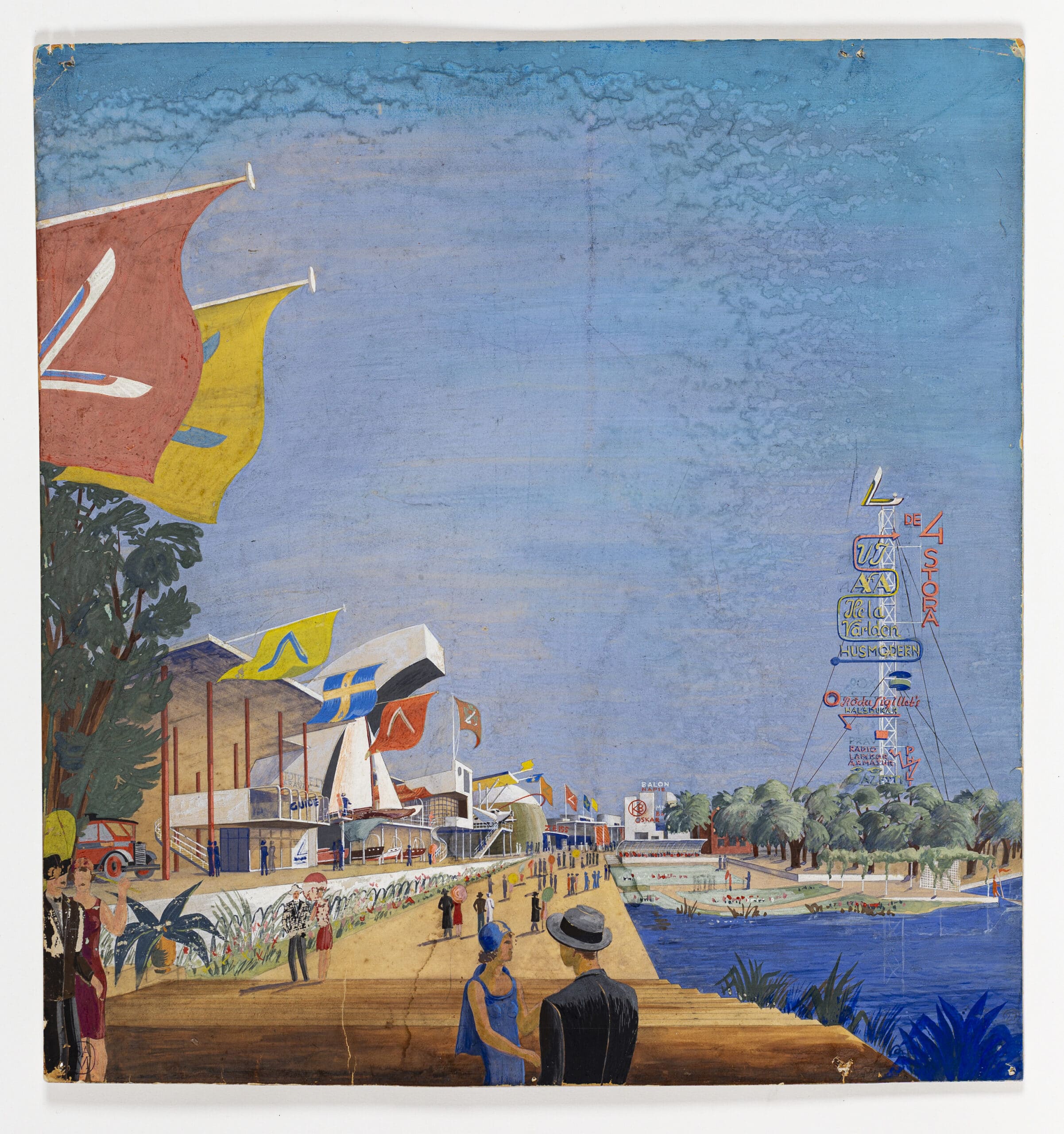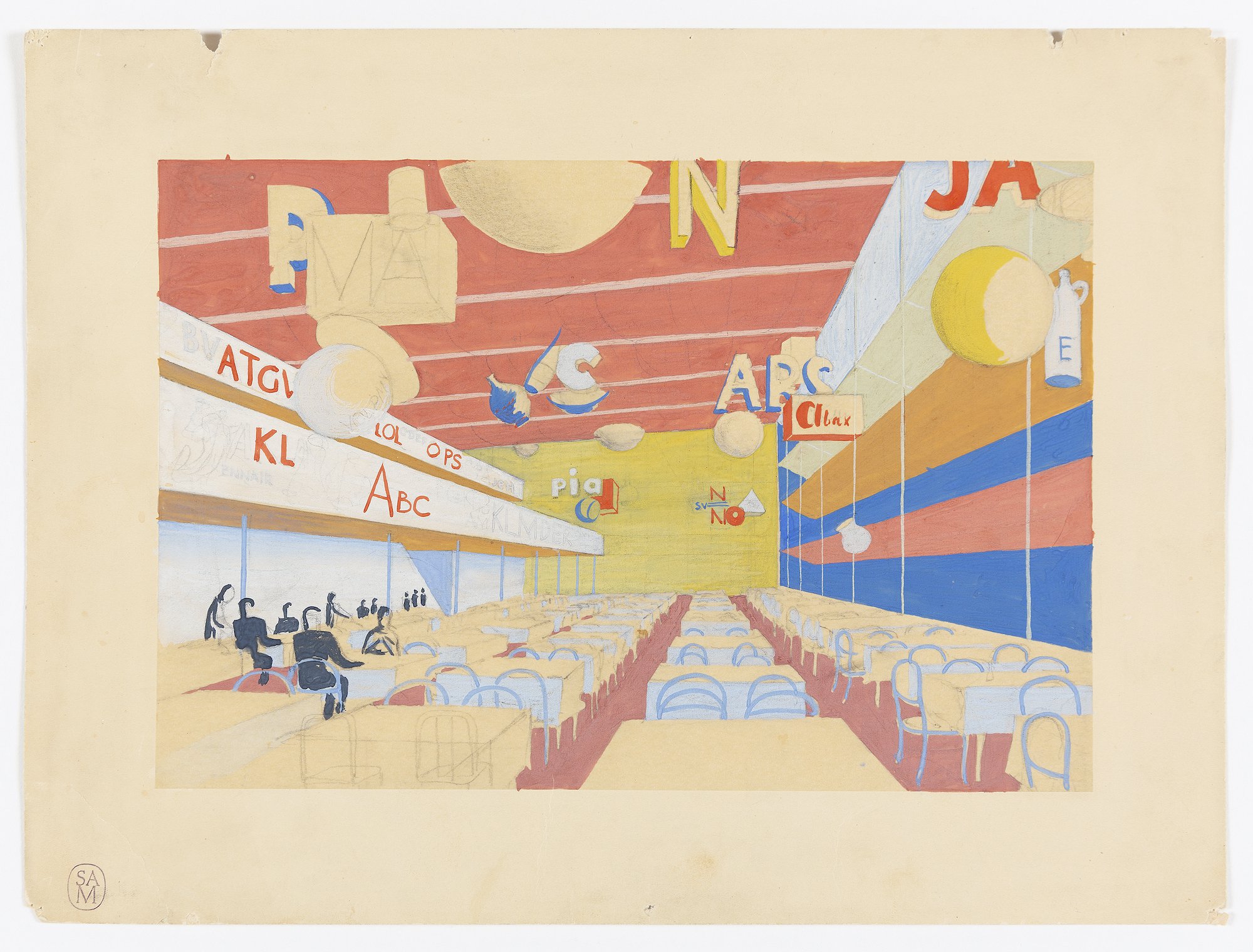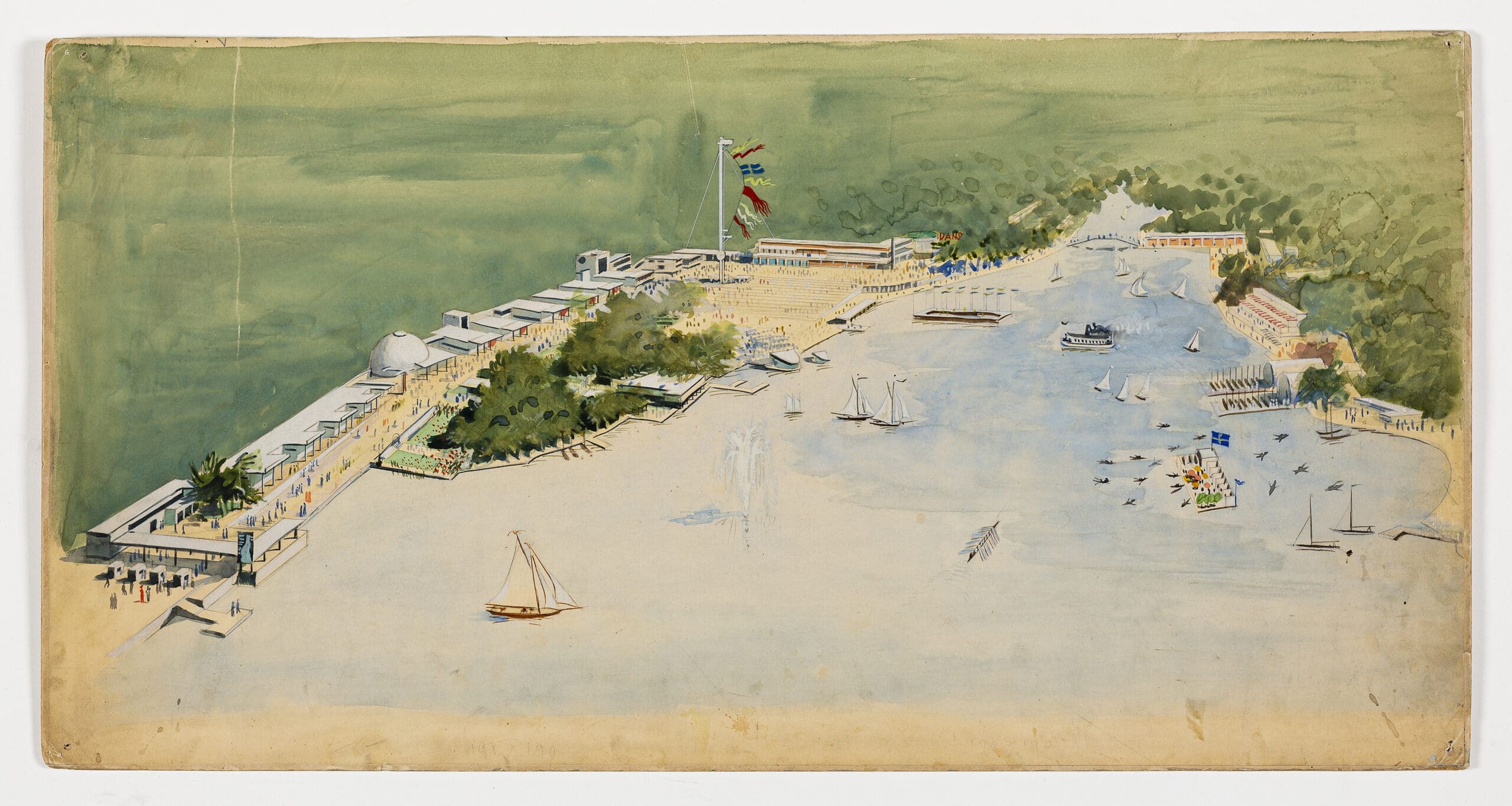The Utzons go to Stockholm

‘…my parents went to visit the grand exhibition in Stockholm in 1930. Here the Scandinavian functionalism had its breakthrough in a society of exceedingly ornate style.
Here [in Stockholm] they were exposed to a new and simple, white architecture that drew in light and air, one that let in the sunshine and paid homage to the practicality, the uncovered—you might call it the functionalistic. This was evident in Gunnar Asplund’s exhibition buildings that were made with light constructions and emanating something completely new in Scandinavia.
My parents returned home, filled with enthusiasm and the new ideas and thoughts, and our entire home was redecorated. Everything was light and friendly, the heavy, impractical pieces of furniture were discarded, and simplicity was introduced. We took up a new diet and were to eat vegetables and other healthy low-fat food; and we were to exercise a lot and have plenty of fresh air—emphasising the light and the direct, so-called natural behaviour. We had to sit in a proper position and have healthy quality furniture. The children were given access to swimming pools where they could go and use their bodies like fish in the water. We got bicycles in order to experience the open landscape and watch what happened. We learned to hold the workman in great esteem. The properly performed work was accentuated. Conventionalism was disregarded—humans were constantly put to the fore, not regulations and mannerism. I insist on stating that we learned to SEE, and that made a very special impact, of course. The void, lifeless museum-like atmosphere disappeared—architecture became a living reality.
I repeat: So much are architects capable of. And it influenced the entire society.’


Reproduced from Anne Whidden, ‘The Stockholm Exhibition of 1930’ (2016). With thanks to Nicholas Olsberg for sending this text to the Drawing Matter editors.
